| Revista Umělec 2006/1 >> Black Laundry | Lista de todas las ediciones | ||||||||||||
|
|||||||||||||
Black LaundryRevista Umělec 2006/101.01.2006 Tamara Moyses | Middle East | en cs |
|||||||||||||
|
The Israeli media are often apologetic. They say that for such a small country as Israel, too much is going on in politics at once. It is controversial to ask whether there might be too much censorship, but one can generally say that by and large influence is exercised over the Israeli media by the present political situation – and right now, that would be the right wing government. Even though it is stated officially that there is no censorship and that everything can be published, the opportunity for any opposition to communicate with the public is decidedly on the decline. With the construction of a wall, establishment of checkpoints and media manipulation, access to objective information about the Israeli-Palestinian conflict has been constricted.
In the summer of 2003 I learned about the peace conference organized by left-wing organizations and representatives of the Palestinian state. It took place at the Jaffa Hotel in Ramaláh. Participants included Hanan Ashrawi and Yasir Arafat. In the course of the conference about two hundred Israelis went through one of the most guarded checkpoints, called Kalandia. The media refused to publish any information, including video footage, saying that in such a small state as Israel there are too many political developments in one day. The historical meeting was never heard by the rest of the world. The next day, as I was projecting the recorded material at the Academy of Arts Bezalel, no one could imagine how I could, as a citizen of the Israeli state, get to Mukkati, the residence of Yasir Arafat, while it was being shot at. That was when I came to understand the meaning of the activist expression: “He was also at Arafat’s.” It isn’t considered appropriate, or politically correct, to talk about settlers torturing their Palestinian neighbors in everyday conflicts that only deepen the mutual hate if Israel is enduring a bomb-attack. It follows then, that there’s no place left for groups of people who try to reflect on these problems in search of resolutions. Art and Activism: a Thin Line In 2000, at the beginning of the second struggle for a free Palestine—Intifada— all Palestinian-Israeli organizations disappeared. As a new phenomenon, a peaceful, pro-Palestinian Israeli organization emerged, called Kvisa Shchora—Black Laundry. The radical Israeli peace activist group Kvisa Shchora was founded by gays, lesbians and feminists. Such groups previously could only be organized on the condition that they didn’t reveal their sexual orientation. The members of the organization are mostly from the realm of art and journalism. Most of the political and social events organized by their group could be compared to conceptual art or public performance. For them, their own statements are purely political, built on the principles of legal circumvention of the state-ordered rules and on communication with the media. Their goal is to get as much attention as possible. For every event they carefully balance what they do by following the media reaction, all the while maintaining close contact with legal advisors. Black Laundry Event at the Israeli Ministry of the Interior 2004 Black Laundry’s event in front of the residence of the Ministry of the Interior was to reveal the differences in the services of its two departments in Jerusalem. Until then few had known that the Ministry of the Interior had two departments in Jerusalem, one in western Jerusalem for the Israelis of a purely Jewish nationality, and another in the eastern part of the city for the Israeli Arabs. The quality of service is incomparable. The waiting period to work with public administration, or to do business, is 20 times longer than in the west. People even sleep there to keep their place in line. For the performance the organizers of the action donned red T-shirts and handed out to pedestrians leaflets with slogans reacting to the most frequent political and economical problems of Israel which called upon citizens to express solidarity. “Are you fed up with unemployment? Join up” “Do you hate the security system of Israel? Join up.” The second page of the leaflet followed the initial shock of the first page with statements that suggested the cause of one’s problems lies in the non-interest in the Arab citizens of Israel, who are much worse off than you. “If they stop feeling so bad you will be better off too.” These comments provoked passionate discussion among passers-by. The purpose of the action—to inform about non-awareness—was fulfilled. As the only “non-violent” action of the group, it was the only one that found success in the media: a brief spot on the evening TV news that discussed the non-human conditions of the eastern branch of the Ministry offices. Black Laundry – Action at a Checkpoint, 2004 Another Black Laundry action was remarkably long, as far as activist activity is concerned. It lasted 45 minutes. Usually within five minutes security units suppress such events—particularly when there is a problem the state doesn’t want to call attention to. This time they wanted to call attention to a problem that most citizens of Israel don’t get into: checkpoints. Because their existence is only discussed in the media in positive contexts, it is difficult to imagine the stress undergone by the average citizen from the occupied territories as they go through. Sometimes they have to wait several hours for permission to get children out of school or even to visit a relative in the hospital. Black Laundry activists sought to introduce this atmosphere to one of the busiest crossroads of Tel-Aviv. 150 participants walked back and forth across the street until they managed to bring traffic to a complete halt. Police were unable to intervene because the activists mingled with people rushing to work, and it wasn’t possible to separate them. Eventually—after 45 minutes—the police intervened violently and arrested the participants, charging them with assaulting a public official. Such events incorporate the strategies of performance or other art actions, but the outcome results in public discussion – not about the action itself, but about the particular political problem. For Black Laundry, the media isn’t a means of self- promotion, but a way to express a common political opinion. They act anonymously. In this way, the semantics of performance and conceptual art serve as a weapon to the ordinary citizen. The cases of the Israeli women, Viki Knafo and Tali Fahima, led me to ask the question: How could such women, as ordinary citizens of the state lacking privileged access to the media, manage to start an intensive media war? In both cases they worked with the media the same way as artists do. In both cases they had a concept prepared, which they followed till the end. The case of Viki Knafo Viki Knafo, a 44-year-old mother of two comes from the small town of Mitzpe Ramon, which is in an economically depressed part of Israel. Knafo managed to fill the pages of Israeli newspapers for 14 months, and she nearly managed to bring the state to economic reform. The then financial minister Benjamin Netanjahu, a representative of the right-wing party, Likud, suffered nightmares because of her. During the rule of the Likud party in 2003, the building of a wall between Palestine and Israel had begun—something many Israelis call “the Berlin wall.” The costs for the building and securing of its protection only deepened the economical crisis of the country, consequently affecting the unemployment rate. The government tried to save money by slashing child benefits. This painfully afflicted the poorest parts of the country, and it was drastic for Knafo and her children. Carrying an Israeli flag, Knafo walked from Mitzpe Ramon for 200 kilometers before arriving at the villa of the finance minister, Benjamin Netanjahu, in Jeruselem. During the few-weeks of her march, she was joined by hundreds of other women. The minister got panicked and said for the sake of the media said that he would negotiate with her, confident that the public would soon forget the women and their message. But Knafo persisted organizing protest events throughout 2004, bringing in more and more supporters from all over the country. The campaign got publicity and the minister’s popularity started to drop. After the protest march in front of the Israeli parliament, a city of tents grew within the neighborhood, which lasted for a whole year. Its inhabitants were mainly women. However, that was not the end of the actions. Soon after that, Knafo and her followers raided a supermarket, filled the baskets and left without paying. Her example was followed by many women in other cities. Thanks to previous publicity, journalists from all the important media outlets went to the place of the “action,” where police and security services of the supermarket were unable to do anything. A discussion followed in the media about who would pay for the supermarket’s loss, mainly with the opinion that it should be paid by the state from its own resources. Despite the extent of the protests, a broad medialization, and the dealings of the government and parliament, there were no changes during the 14 months. Knafo, tired and disappointed, announced a last action. She released a video of herself, naked. The camera read inscriptions on her imperfect body. “You sucked me dry” was on her chest, on her buttocks was scrawled, “The government raped me,” and “Here the revolution was born,” was on her belly. The confused Israeli media wrote about the tape as if it were a performance or a piece of video art. But the essential problems were not addressed. Benjamin Netanjahu resigned from his ministerial mandate. In the next elections he wanted to run again, but because of his deprecating reputation, his party wouldn’t accept his return. The case of Tali Fahima Tali Fahima is an Israeli woman who publicly announced her intention to serve as a human shield for Zahary Zveydy, a man accused of organizing a bomb attack on the division of the Likud party in Beit Shean, in 2002. To prevent his physical liquidation by the Israelis, she followed him till the moment when Israel made an agreement with the Palestinian authority, and its Prime Minister, Abu Mazen, about removing Zveydy’s name from the list of people under investigation by the secret service of Mossad. To this day it is not clear whether Zahary Zveydy was a real terrorist or if he was accused unjustly. More important is the way Fahima highlighted the violation of human rights by the Israeli army and secret service. Currently she is under arrest, investigated for assisting the enemy, transferring information to a foreign agent and for helping a terrorist organization. She has been charged with spending time in the city of Jenin as a guide of Zahary Zveydy. http://www.freetalifahima.org Political Artists in Israel Cooperate with Activists A political artist living in a military state must maintain contact with activists and peace organizations or they will never obtain fresh news and non-censored material. The internet magazine of www.maarav.org.il represents the crossroads of these sectors. It informs about the festivals of new media, about electronic music, political exhibitions and actions. In addition, there are links to established art institutions and various peace organizations. There are other channels in the limited Israeli media environment such as the electronic media and VJ culture. Musicians and video-artists organize once a week techno-parties in various alternative spaces where they project the latest, non-censored, video-recordings. It is a strange thing to look at: children from Tel-Aviv on ecstasy, hopping when they see the shots from occupied territories, a shooting Israeli soldier, dances on bulldozers destroying Palestinian houses. Many of the recordings were filmed by Palestinians into whose hands Israeli artists and activists put video technology. This phenomena can be compared to a wave of protests which arose soon after the actions by the Czech police on Czech Tech in 2005. Then, video became a political tool just the same. The Israeli artistic-activist scene is an exemplary case of a blurred line between art and political protest in a repressive political system. Many of these actions use the language of contemporary art and simultaneously subsume it’s controversial values. The media – like video – is no longer a tool of centralized mass communication as now it enters into dialogs of the relationships in society. Links: http://www.no-org.net/about.php http://www.artfocus.co.il/index.html http://www.demokino.net/ http://minerva.tau.ac.il http://www.freetalifahima.org http://www.indymedia.org http://www.btselem.org http://www.maayanmagazine.com/ http://www.kibush.co.il http://artistindex.co.il http://www.maarav.org.il http://israblog.nana.co.il http://www.digitalartlab.org.il
01.01.2006
Artículos recomendados
|
|||||||||||||
|
04.02.2020 10:17
Letošní 50. ročník Art Basel přilákal celkem 93 000 návštěvníků a sběratelů z 80 zemí světa. 290 prémiových galerií představilo umělecká díla od počátku 20. století až po současnost. Hlavní sektor přehlídky, tradičně v prvním patře výstavního prostoru, představil 232 předních galerií z celého světa nabízející umění nejvyšší kvality. Veletrh ukázal vzestupný trend prodeje prostřednictvím galerií jak soukromým sbírkám, tak i institucím. Kromě hlavního veletrhu stály za návštěvu i ty přidružené: Volta, Liste a Photo Basel, k tomu doprovodné programy a výstavy v místních institucích, které kvalitou daleko přesahují hranice města tj. Kunsthalle Basel, Kunstmuseum, Tinguely muzeum nebo Fondation Beyeler.
|







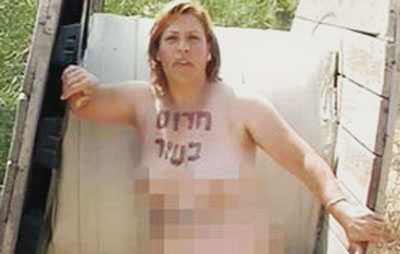
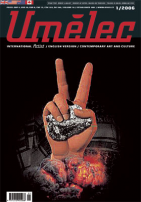














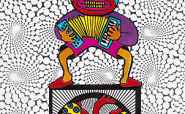
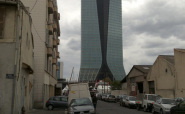

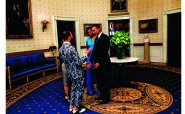
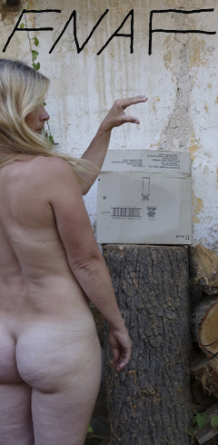






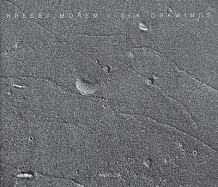




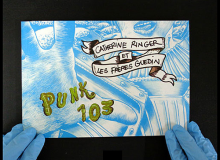
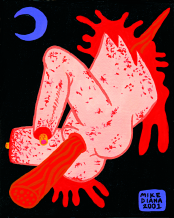
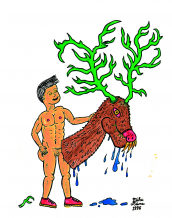



 We Are Rising National Gallery For You! Go to Kyjov by Krásná Lípa no.37.
We Are Rising National Gallery For You! Go to Kyjov by Krásná Lípa no.37.
Comentarios
Actualmente no hay comentariosAgregar nuevo comentario